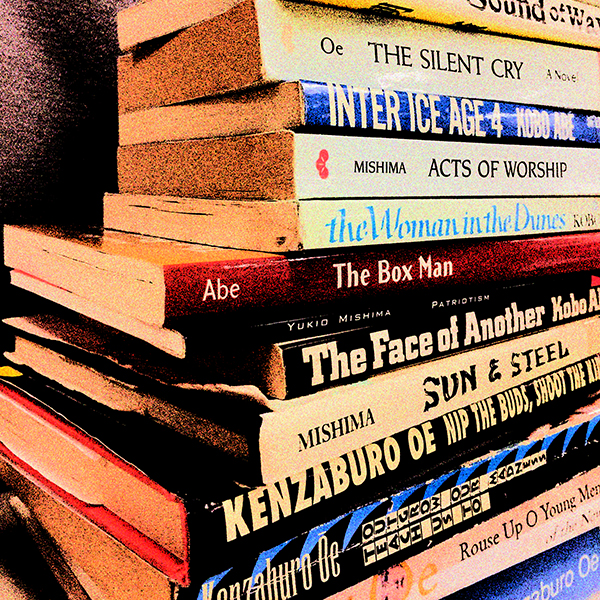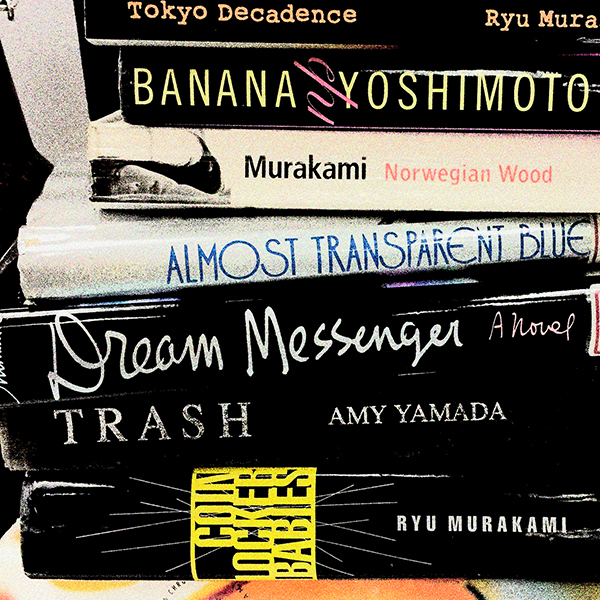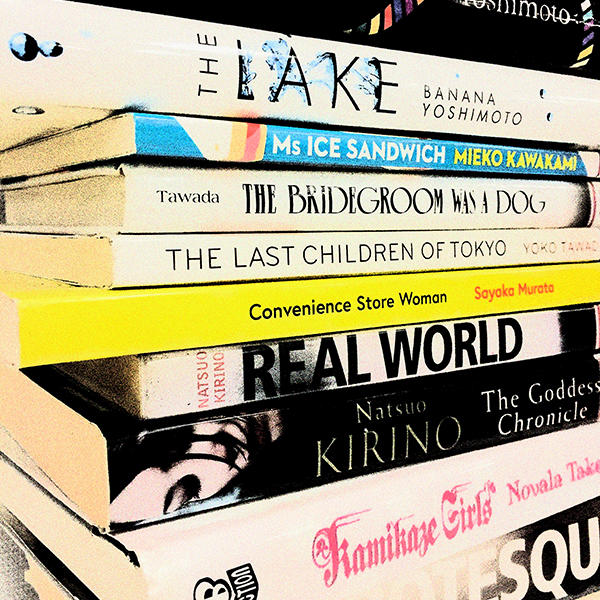
Media Release
For Immediate Release | February 10, 2021
Autumn Reading, Sorted
Japanese Literature in Translation Talk Series
We all know there’s nothing quite like curling up with a good book during the chilly autumn months, but with a seemingly endless number of options available, how do you decide where to start? For anyone even slightly curious about writing from Japan, this is more of a conundrum now than ever: the current boom in Japanese literature in translation means that we’re much more spoilt for choice than before.
But never fear. This year, The Japan Foundation, Sydney will help you get your autumn reading sorted with Read Japan: A Booklover’s Guide to Japanese Literature in Translation, 1960 – Now. This series of three talks is designed to help intrepid and curious booklovers navigate the ever-increasing selection of Japanese books available to English-language readers.
Read Japan is for anyone who loves to read, from newcomers to Japanese literature to more seasoned but adhoc readers of Japanese books who want to put some method to the proverbial madness. The speakers, all experts in Japanese literature, will introduce novels published in Japan over three consecutive 20-year periods—the 1960s-70s, 1980s-90s, and 2000 to present—focusing on works translated into English. Each talk will look at the social and political context of the time, as well as important writers and movements, and offer a shortlist of recommended books to create a roadmap for exploring Japanese literature.
To assist the journey, all audience members will receive a 20% discount voucher from Books Kinokuniya Sydney, redeemable online, and will have a chance to win one themed book pack per night, also courtesy of Books Kinokuniya Sydney.
PROGRAM
March 11, 6:30-7:30pm (online only)
Abe, Mishima & Oe: Solving Your Existential Crises since 1960
In this talk, Mark Gibeau (Senior Lecturer, College of Asia and the Pacific, The Australian National University) will examine three giants of postwar Japanese literature—Kobo Abe (1924-1993), Yukio Mishima (1925-1970), and Nobel laureate Kenzaburo Oe (b. 1935)—and discuss how they sought to construct a philosophical and moral response to the upheaval and change that engulfed them.
March 18, 6:30-7:30pm (onsite & online)
New Humans, New Novels: Japanese Literature from the 1980s and 1990s
In the second talk of the Read Japan program, Rebecca Suter (Associate Professor in Japanese Studies, The University of Sydney) will examine a range of literary works of the 1980s and 1990s and the ways in which they reflected and affected the social transformations of their time.
March 25, 6:30-7:30pm (onsite & online)
Female Authors Shine: Japanese Literature from 2000 to Today
The final talk of the series with Tamaki Mihic (Lecturer in Japanese Studies, The University of Sydney) looks at novels by Natsuo Kirino, Risa Wataya, Mieko Kawakami and Novala Takemoto, as well as rising star Sayaka Murata (of Convenience Store Woman fame). In doing so, it provides insight into how present-day Japanese are conceptualising youth and femininity against the backdrop of the decreasing birth rates and stagnant consumption that have characterised the past twenty years in Japan. The talk also celebrates the release of Tamaki’s book, Re-Imagining Japan After Fukushima (ANU Press, 2020).
Dates
Thursdays
March 11 – 25, 2021 (AEDT)
6:30pm-7:30pm
Venue
March 11: Online only via Zoom
March 18 & 25: Onsite (limited capacity) & online via Zoom
ABOUT MARK GIBEAU
Mark Gibeau teaches Japanese, literary translation, and Japanese literature. His primary specialty is Japanese literary translation, but his research interests also include the fantastic and the unreal, the New Japanese Literature Association and literature of the left in the immediate post-war period. His award-winning translation of Osamu Dazai’s Ningen shikkaku (1946) as A Shameful Life was published by Stonebridge Press in 2018. He has also published a range of translations of short stories, novellas and screenplays by Yasunari Kawabata, Junichiro Tanizaki, Shugoro Yamamoto, Sakumi Tayama, Kobo Abe and others. He is currently working on a translation of Kobo Abe’s 1964 historical novel Enomoto Būyō, tentatively titled The Traitor.
ABOUT REBECCA SUTER
Rebecca Suter is a specialist in modern Japanese literature and popular culture, with a cross-cultural focus. She is the author of The Japanization of Modernity: Murakami Haruki between Japan and the United States (2008), Holy Ghosts: the Christian Century in Modern Japanese Fiction (2015), and Rewriting History in Manga: Stories for the Nation (2016), co-edited with Dr. Nissim Otmazgin. She is also a translator of manga, and has translated works by Moyoko Anno and Taiyo Matsumoto, among others. Her latest book, Two-World Literature: Kazuo Ishiguro’s Early Novels, will be released by University of Hawaii Press in May 2020.
ABOUT TAMAKI MIHIC
Tamaki Mihic specialises in contemporary Japanese literature, exophonic literature, Translation Studies and Comparative Literature. Her new book, Re-imagining Japan After Fukushima explores the portrayal of post-Fukushima Japan in cultural responses to the disaster.
EDITOR’S NOTES
- Images on this webpage can be used for editorial purposes.
- For high-resolution images and different dimensions, please contact us.
Venue
March 11: Online only via Zoom
March 18 & 25: Onsite (limited capacity) & online via Zoom
The Japan Foundation, Sydney
Level 4 (via lifts), Central Park
28 Broadway
Chippendale NSW 2008
Admission
Free admission; bookings required
Limited capacity onsite
Media Enquiries
Elicia O’Reilly
(02) 8239 0055
General Enquiries
(02) 8239 0055




